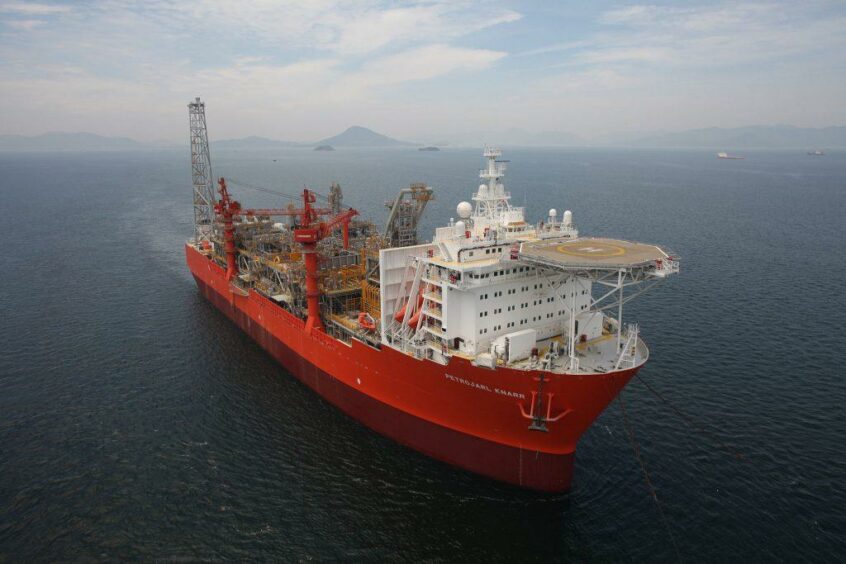
Following the approval of Shell’s Jackdaw field, analysts are weighing in on whether the move signals an acceleration on reported government plans to “fast track” key North Sea fields.
Shell was finally granted permission to proceed with its plans for the 250-million-barrel gas condensate project, 155 miles east of Aberdeen, after OPRED blocked its progression last year on environmental grounds.
Jackdaw’s approval also lends weight to reports by the Daily Telegraph earlier this year which suggested the Treasury was pushing for several key North Sea fields to be fast-tracked through the approval and investment process.
Alongside Jackdaw, the fields named in the report include Rosebank, Marigold, Brodick and satellites on the Catcher field, as well as the Tolmount East development.
Most have already been partially sanctioned by government and identified by their respective owners for potential final investment decisions (FIDs) later this year, or next.
For example, Rosebank – which at 300 million barrels is one of the largest undeveloped prospects in the basin – was recently granted a two-year licence extension, ahead of an expected FID from operator Equinor in 2023.
As James Reid, senior research analyst for North Sea upstream at Wood Mackenzie said in a recent note: “Jackdaw is one of the top pre-FID gas fields (by resource) in the UK, and the first major project to receive approval since 2019. It will be seen as a positive development by other UK operators, with projects such as Cambo, Marigold, Murlach, Rosebank and Glendronach approaching FID.”
Yet while the approval may send positive signals, David Moseley, vice president of North Sea research at Welligence, was unconvinced it would herald an acceleration in development timelines for other fields.
“Plans by the Government earlier in the year for field development approvals to be fast tracked are ultimately unlikely to result in a significant reduction in time to first production,” he told Energy Voice.
“The hurdles over which projects need to pass to receive approval are not expected to materially change in the short term and therefore the scope to accelerate development timescales is likely to be minimal.”
He noted that the majority of current planned developments have formed part of recent M&A transactions.
“This may temporarily slow, or have already slowed, their pace of progression where they are largely immaterial in the deal, including Tolmount East (Harbour) and Brodick (NEO), or accelerate this where the asset was a key component of the transaction, such as Cambo (Ithaca),” he continued.
Yet following the launch of the government’s British Energy Security Strategy and the recent investment incentives offered as part of the Energy Profits Levy, Mr Reid pointed to a “a softening of the sentiment for the oil and gas industry in the political sphere recently.”
“Throwing the new fiscal terms into the mix could increase the likelihood of progression for pre-FID projects,” he said, in line with recent analysis from Wood Mackenzie which suggested the levy could accelerate “ready to go” projects.
Mr Mosely agreed that the incentives would benefit larger projects in particular.
“The newly introduced [levy], whilst arguably damaging in a mature basin that requires a long-term approach to stable investment, has the potential to positively impact some larger projects where it could help shield companies’ profits from the Levy and encourage their speedy progression, such as Cambo and Rosebank,” he added.
“However, any increase in the rate of new fields starting production, whether driven by improved approval processes or from E&P companies seeking to accelerate the start-up of assets, will result in the hopper of future developments diminishing more rapidly.
“To mitigate this, there will need to be a similar appetite to accelerate rates of exploration drilling to replenish the future development pool.”
As for Jackdaw, Shell has said it now intends to progress the project, which at peak production could account for 6.5% of UK gas, with the aim of first production in Q3-Q4 2025.
The move was welcomed by Deirdre Michie, chief executive of trade body Offshore Energies UK, who said the approval was “good news at a time when we need to meet our country’s energy needs from domestic supplies of energy, especially during this time of heightened geo-political tensions and their effects on the energy market.”
 © Supplied by Teekay
© Supplied by Teekay